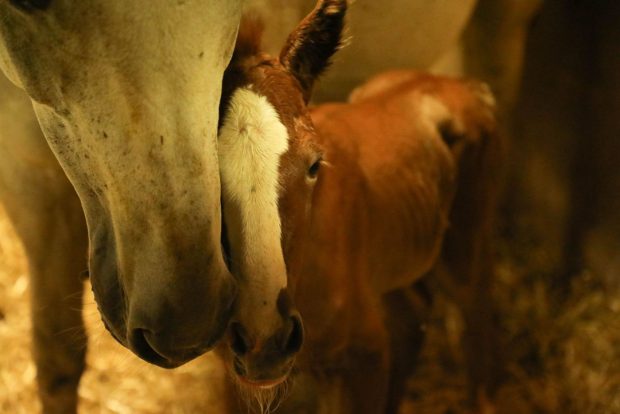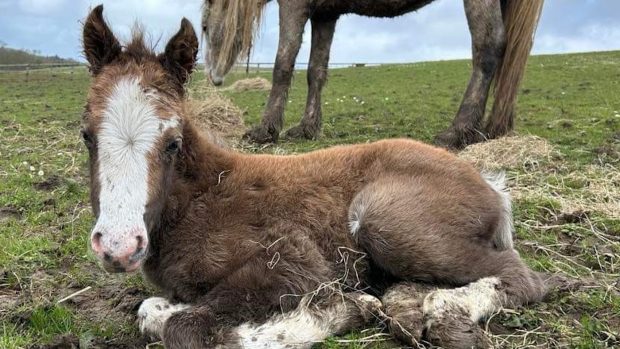The stress of foaling is more than compensated for by the arrival of a decent foal. However, even a healthy foal can appear frail and an enormous amount can go wrong in the first weeks of life.
Many of the problems affecting a growing foal can have a profound effect on its future health, so it is essential to watch it carefully and treat it properly from the start.
A foal is not a tiny 50kg version of an adult horse, but a newborn baby adapting to life in a huge world. Prior to birth, the foal is totally protected from the outside world. After birth it has to adjust quickly as it is required to get on its feet, feed and move around after its dam.
After the vet has done a post-natal check on both mare and foal, the responsibility for mare and foal returns to the breeder. The important things to monitor at this time include:
- Is the foal breathing normally? Immediately after birth it will breathe at a much faster rate than an adult horse
- Is the foal bright, alert and aware of its surroundings? A healthy foal will have a suck reflex within 20min of birth and will usually try to stand within 30min of birth
- The foal should stand and suckle within 2-3hr of birth. If it has shown no signs of trying to get up and feed within 3-4hr, call your vet
- The foal should pass its first droppings (meconium) within the first day of life. This is coloured dark brown to black and can be firm in consistency. Much softer, lighter-coloured “milk” droppings will follow the dark meconium
- The foal should pass urine normally
- The gums of a foal should be a healthy pink colour. Watch out for yellow gums, which can be a sign of jaundice
- The mare should welcome her foal without aggression. Occasionally, a mare will reject the foal
- If the foal is to remain healthy, the mare must be well, too. Check that she is comfortable and the whole placenta is expelled within 3-6hr of foaling
- After the foal has settled into a routine, any change from the normal pattern of behaviour, particularly sleeping more than usual or failing to drink from its mother, should be taken seriously. Normal foals should suckle on average seven times an hour
- Check the mare’s udder to see if it is full. A distended udder is one of the first signs of a “fading foal”
- Either ensure that the foal is given anti-tetanus treatment by your vet soon after birth or, better still, ensure that the dam is properly vaccinated in the couple of months preceding foaling so that she can pass on the immunity to her foal
If you have any doubts about either foal or dam, discuss these with your vet. Any foal abnormality or illness should be taken as seriously, if not more so, than a similar condition in an adult horse as foals can go downhill very quickly.
|
||
 |
||


 Get up to 19 issues FREE
Get up to 19 issues FREE TO SUBSCRIBE
TO SUBSCRIBE 


